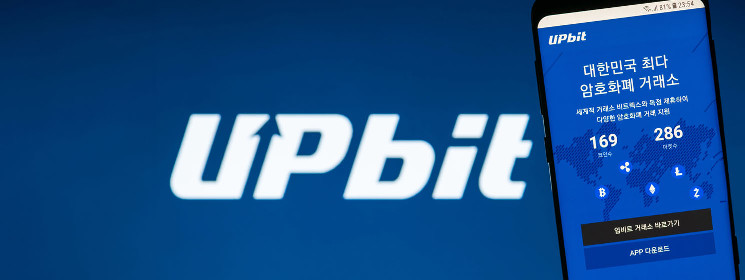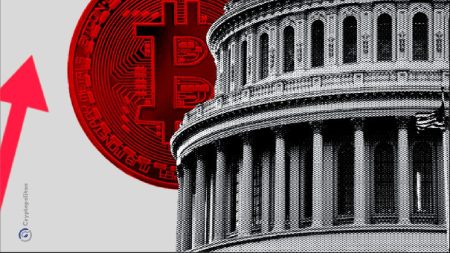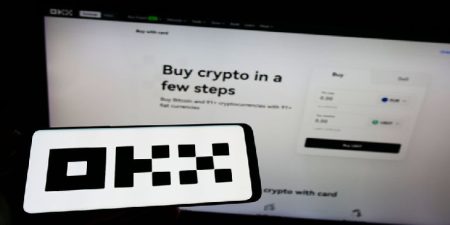South Korea Opens Digital Asset Markets to Institutional Investors
A New Era for Digital Assets in South Korea
In a landmark decision, South Korea’s Financial Services Commission (FSC) has announced that institutional investors will be allowed to open accounts on digital asset exchanges starting in the second half of 2024. This move marks the end of a seven-year ban on institutions holding digital assets, which was first introduced in 2017. The decision is part of a broader effort to regulate and expand the digital asset market in South Korea, one of the world’s largest and most active cryptocurrency markets. The FSC has developed a staged approach to allow corporations to hold digital assets, ensuring consumer protection and market stability remain top priorities.
The new roadmap begins with the introduction of real-name verified corporate accounts in the first half of 2024. These accounts will initially allow institutions to sell their digital asset holdings for fiat currency. However, virtual asset service providers (VASPs) will only be permitted to liquidate tokens once industry standards are established to prevent conflicts of interest with customers. By the second half of 2025, the FSC plans to expand the functionalities of these corporate accounts, enabling institutions to engage in a wider range of digital asset investments and financial activities.
High Demand Drives Regulatory Change
The FSC’s decision to open the digital asset market to institutional investors was driven by the significant demand from South Korea’s corporate sector. The country is renowned for its appetite for high-risk, high-return investments, and digital assets have been no exception. At the launch of the new roadmap, the FSC reported that 3,500 corporate entities had already expressed interest in participating in the digital asset market under the new regulations. These investors are attracted to the potential benefits of blockchain technology and the growing opportunities in the digital asset space.
The FSC noted that many of these institutional investors are already eligible to invest in highly risky and volatile derivatives products, indicating their readiness to engage with the digital asset market. By formalizing their participation, the FSC aims to bring greater transparency and oversight to the sector, which has often operated in a regulatory gray area. This move is expected to further legitimize digital assets as a viable investment option for institutional players.
Balancing Risk and Regulation
While the decision to admit corporates into the digital asset sector presents significant opportunities, it also comes with risks. The FSC has acknowledged the potential challenges, including market volatility, fraud, and conflicts of interest. To mitigate these risks, the regulator plans to strengthen its oversight of the digital asset market. This includes stricter monitoring of transactions and enhanced guidelines for financial institutions to verify the identities of clients engaging in digital asset activities.
The FSC has also called on financial entities to implement robust checks on clients involved in cryptocurrency transactions. These measures are designed to protect consumers and maintain the integrity of the financial system. By introducing these safeguards, the FSC aims to create a more secure and stable environment for institutional investors to operate in the digital asset space.
Upbit Faces Fines, Bybit Clears Regulatory Hurdle
As South Korea’s regulatory framework for digital assets continues to evolve, one of the country’s largest exchanges, Upbit, is facing potential fines for violating Know Your Customer (KYC) regulations. An investigation launched in November 2023 found over 700,000 violations, according to local media reports. Each violation could result in thousands of dollars in fines, potentially leading to the largest penalty ever imposed on a virtual asset service provider (VASP) in Asia. Additionally, the exchange could face a suspension of up to six months.
Elsewhere, Bybit, another major cryptocurrency exchange, has been cleared by French authorities after being placed on a regulatory blacklist since mid-2022. The Autorité des Marchés Financiers (AMF) had previously warned investors against using Bybit and threatened to block its website, though it never did. Bybit’s CEO, Ben Zhou, announced that the exchange has been removed from the AMF’s blacklist after two years of working with the regulator to address concerns. Bybit is now pursuing a MiCA (Markets in Crypto-Assets) license, joining other major exchanges like Crypto.com and OKX that have already obtained the license.
Market Volatility and Listing Practices
Beyond the regulatory developments, the FSC’s virtual asset meeting also addressed the need for improved practices in listing virtual assets on exchanges. The regulator highlighted the issue of extreme price volatility that often follows the listing of new tokens. Many new tokens experience significant price drops after listing, with some losing over 80% of their value as early investors and whales sell their holdings to retail investors. This phenomenon is not unique to South Korea; it is a widespread issue in the global digital asset market.
For example, two memecoins linked to the U.S. first family, $TRUMP and $MELANIA, recently lost over 80% of their value after Donald Trump’s inauguration. Such incidents underscore the need for exchanges to implement better screening processes for new projects to reduce the risk of excessive volatility. The FSC emphasized the importance of robust due diligence and transparency in listing decisions to protect investors and maintain market confidence.
The Road Ahead for South Korea’s Digital Asset Market
South Korea’s decision to open its digital asset market to institutional investors marks a significant shift in its regulatory approach. The gradual rollout of the new roadmap reflects the FSC’s commitment to balancing innovation with consumer protection. While the decision presents opportunities for institutional investors, it also raises important questions about risk management, market stability, and regulatory oversight.
The FSC’s focus on strengthening oversight and implementing stricter guidelines is a step in the right direction. However, the challenges posed by market volatility, fraud, and conflicts of interest will require ongoing attention. As South Korea continues to navigate the complexities of the digital asset market, its approach will likely serve as a model for other countries seeking to regulate this rapidly evolving sector.
In conclusion, South Korea’s decision to allow institutional investors to participate in the digital asset market is a landmark moment for the industry. The FSC’s staged approach reflects a cautious yet forward-looking strategy that aims to harness the potential of digital assets while safeguarding consumers. As the market continues to evolve, the regulator’s ability to adapt to new challenges and opportunities will be crucial in shaping the future of South Korea’s digital asset landscape.















